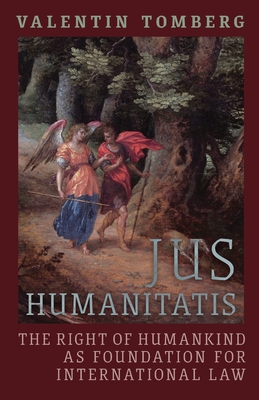Jus Humanitatis: The Right of Humankind as Foundation for International Law

Jus Humanitatis: The Right of Humankind as Foundation for International Law
"In Tomberg's eyes, the human catastrophe of the Second World War was a consequence of the degeneration of jurisprudence that had begun in the medieval controversy between Realism and Nominalism, continued in the Renaissance and Early Modern period, led to the European revolutions, and culminated in the modern totalitarian state. In the present text, he sought passionately to contribute to a regeneration of jurisprudence."-Michael Frensch, author of Weisheit in Person, Die Wiederkunft Christi, etc.
"In this book, written amid the final devastations of WWII, Valentin Tomberg, who along with some other German jurists was regarded as a leading representative of the idea of natural law, defended the position that international law-which he conceived as the right or law of humankind as a whole-had to stand above the law of states. For him, this meant that external intervention is justified when international law is violated." -Harrie Salman, author of Valentin Tomberg and the Ecclesia Universalis
"Valentin Tomberg penned this great treatise on in
PRP: 156.65 Lei
Acesta este Prețul Recomandat de Producător. Prețul de vânzare al produsului este afișat mai jos.
140.99Lei
140.99Lei
156.65 LeiLivrare in 2-4 saptamani
Descrierea produsului
"In Tomberg's eyes, the human catastrophe of the Second World War was a consequence of the degeneration of jurisprudence that had begun in the medieval controversy between Realism and Nominalism, continued in the Renaissance and Early Modern period, led to the European revolutions, and culminated in the modern totalitarian state. In the present text, he sought passionately to contribute to a regeneration of jurisprudence."-Michael Frensch, author of Weisheit in Person, Die Wiederkunft Christi, etc.
"In this book, written amid the final devastations of WWII, Valentin Tomberg, who along with some other German jurists was regarded as a leading representative of the idea of natural law, defended the position that international law-which he conceived as the right or law of humankind as a whole-had to stand above the law of states. For him, this meant that external intervention is justified when international law is violated." -Harrie Salman, author of Valentin Tomberg and the Ecclesia Universalis
"Valentin Tomberg penned this great treatise on in
Detaliile produsului













